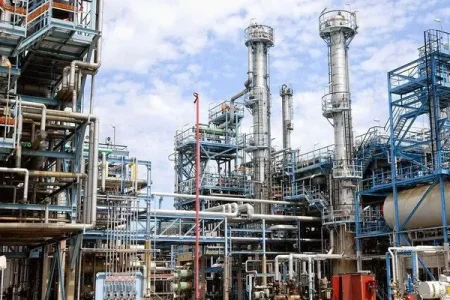
The Port Harcourt Refinery has halted operations just weeks after a $1.5 billion rehabilitation. Petrol lifting stopped, and loading bays remained empty, raising concerns about the refinery's output. Critics accuse the government of staging a public show, while production of diesel and kerosene has yet to resume.
According to Punch newspaper, less than a month after the Port Harcourt Refinery was celebrated for resuming production following a $1.5 billion rehabilitation, the facility has ceased operations once again, raising doubts about its long-term viability.
On December 19, 2024, a punch correspondent visiting the refinery discovered that petrol lifting had stopped, with the loading bay empty. Reports indicate that the halt in petrol lifting occurred on December 13, when the refinery’s 18-arm loading bay remained vacant. Around 18 trucks were seen parked outside the facility, with only nine inside the parking yard, an unusual sight for a depot that is typically busy with tankers.
The refinery’s reopening on November 26, 2024, was met with celebration, as the Nigerian National Petroleum Company Limited (NNPC) inaugurated the refurbished plant, which was expected to produce 60,000 barrels per day. During the opening ceremony, there was some lifting of petrol, but only a handful of trucks were loaded, a stark contrast to the initial claims that hundreds of trucks were set to transport fuel. Speculation arose that the petrol being loaded might have been old stock from the refinery's storage tanks, which could explain the limited output.
As of mid-December, operations at the refinery had scaled back, with Punch reporting that the loading bay was deserted. Three weeks after the reopening, there was no lifting of products, and workers were largely idle, with many truck drivers unsure of when operations would resume. One driver mentioned that lifting would restart the following Monday, though there was uncertainty about whether this would occur.
Petroleum marketer Mr. Dappa Jubobaraye expressed frustration with the refinery’s performance, alleging that the government’s reopening event was more of a public relations stunt than a genuine operational success. He criticized the refinery for having only three functional loading arms, all dedicated to petrol, and none for kerosene or diesel, products that are essential to the Nigerian public. Jubobaraye also pointed out that the loading meters had not been calibrated before the reopening, further hindering the refinery’s ability to operate at full capacity.
The refinery’s setbacks have raised concerns among independent marketers who rely on the facility for fuel supplies. Many have yet to receive products, as the NNPC has failed to provide clear pricing or operational guidelines, leaving the refinery largely inactive since the reopening event.




